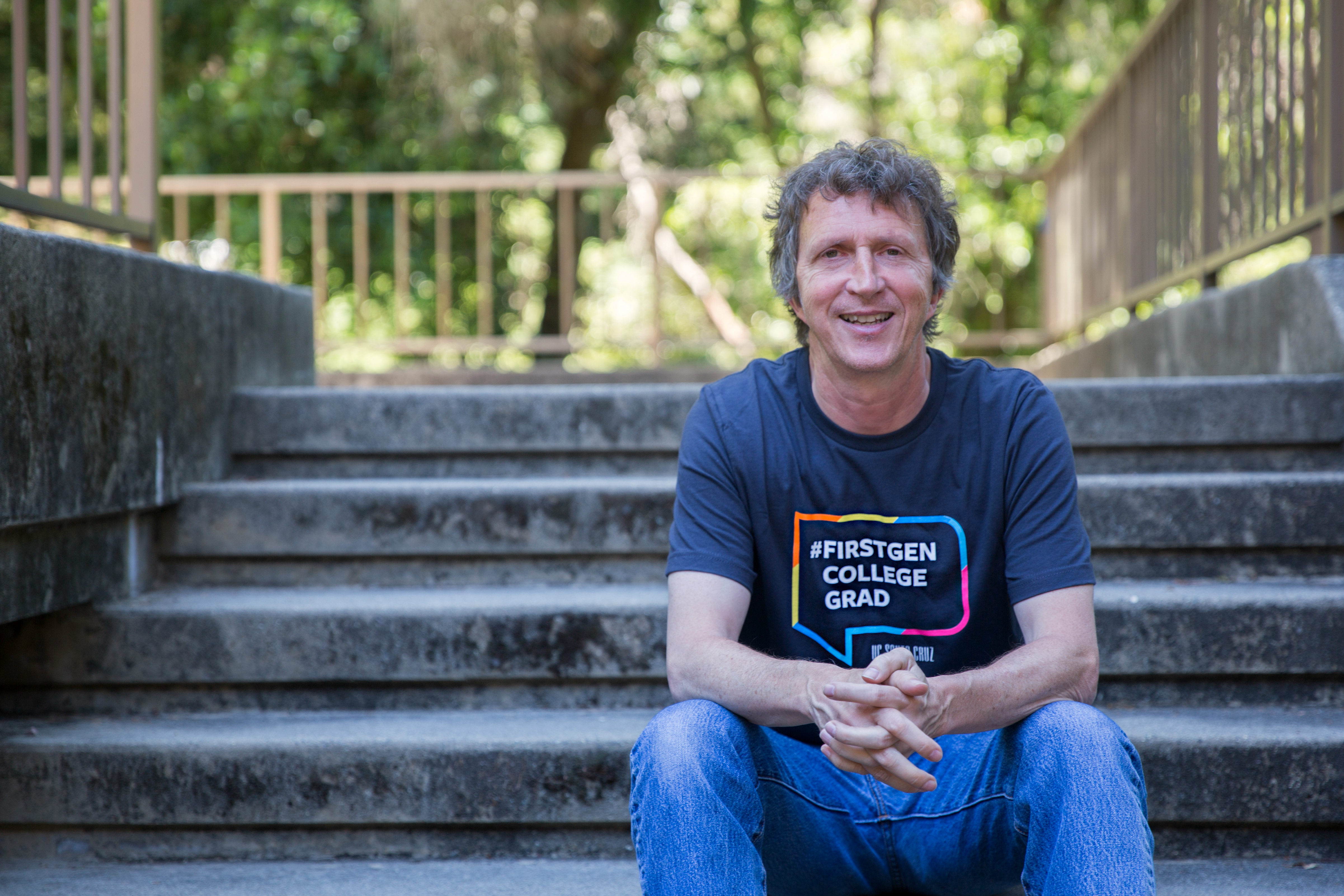First-Gen Faculty: Jaye Padgett (Professor, Linguistics Department, and Former Vice Provost for Student Success)

His father never graduated high school and procured work as a printer and later a chauffeur. His mother earned her diploma, but instead of continuing on to college got work as an administrative assistant.
“Really, I was the only person in my family to have a college experience,” Jaye said.
When he did arrive for his freshman year at the University of Maryland he felt keenly that he was out of place. He didn’t know how to pronounce sophisticated words that many of his peers used with a casual fluency. He didn’t know very much about composers, writers, painters, and other aspects of what is called “cultural capital”.
“My background was low-income and I think in that sense I felt like I didn’t fit in,” Jaye said.
Nevertheless, his status as a first-generation college student didn’t occur to him until recently, since he attended a large university in the 1980s when there wasn’t even a concept of first-generation college students let alone support services.
Jaye struggled at first as a result.
“Academically, I felt a little bit lost in those first years of college,” Jaye said. “But I discovered linguistics and the Russian language and literature and in the last couple of years while in college I got straight A’s.”
Jaye said his parents never fully understood his academic pursuits, but always remained supportive and proud.
“I think having parents who didn’t go to college is presented as a disadvantage, but there is a flip side to that too,” he said. “Everything I did academically was because I wanted to do it, not because my dad wanted me to be an engineer.”
While Jaye was fortunate enough to find his calling, he understands the many pressures that first-generation students can feel. “It isn’t just about academic preparation”, he notes. “First-generation students may lack a secure sense of belonging at the university, may face stereotype threat, and are less likely to know who to turn to for support.”
It’s why he relishes the opportunity to serve as (Former) Vice Provost for Student Success.
“There are huge economic disparities, quality of life disparities related to access to higher education, which is itself correlated with income and ethnicity,” he said. “We have a moral imperative to do better.”
